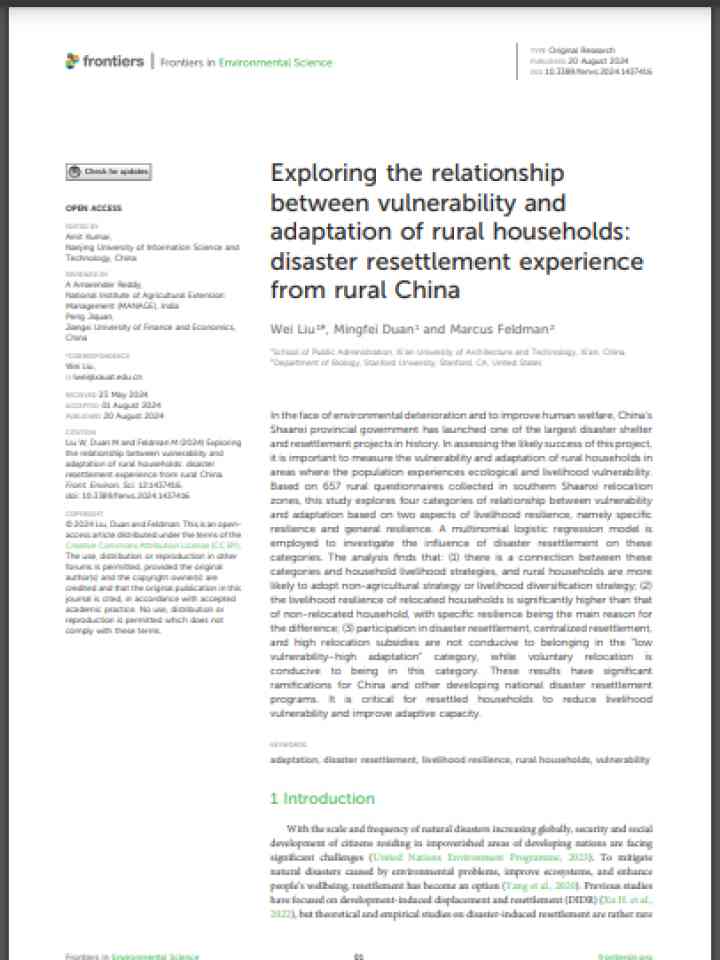Exploring the relationship between vulnerability and adaptation of rural households: Disaster resettlement experience from rural China
This study analyzes the implications of disaster resettlement on "vulnerability-adaptation" categories in southern Shaanxi by measuring specific and general resilience. This is of theoretical significance to the study of vulnerability and adaptation of livelihoods at the household level.
The analysis finds that: (1) there is a connection between these categories and household livelihood strategies, and rural households are more likely to adopt non-agricultural strategy or livelihood diversification strategy; (2) the livelihood resilience of relocated households is significantly higher than that of non-relocated household, with specific resilience being the main reason for the difference; (3) participation in disaster resettlement, centralized resettlement, and high relocation subsidies are not conducive to belonging in the "low vulnerability-high adaptation" category, while voluntary relocation is conducive to being in this category.
Explore further
